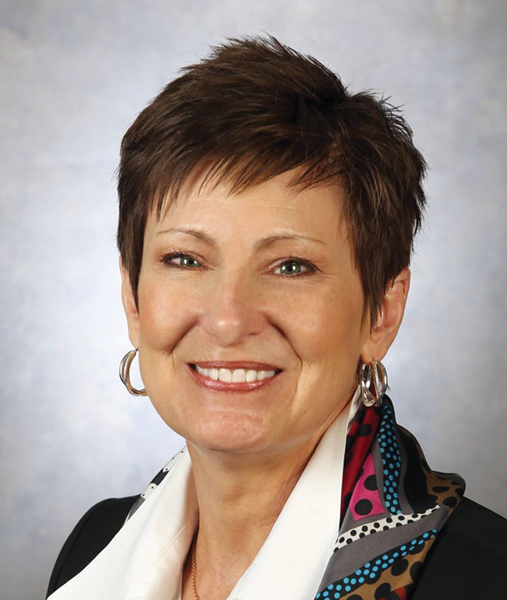Almost two years ago NourishKC was in such dire financial straits that leaders feared they would have to close their doors. But thanks to careful budgeting and generous donations from individuals and local foundations, the agency enters 2021 on firm footing and is looking forward to the work of a new executive director.
Sue Fenske begins her work overseeing the agency that has roots in its former identity as Episcopal Community Services and which on feeding people through three programs:
- the Kansas City Community Kitchen, which provides between 2,000 and 3,000 meals a week,
- the Food Rescue Network, which gathers unused food from grocery stores, community gardens and other providers, and
- the Culinary Training Program, which offers older foster children the chance to learn food service job skills.

Fenske returns to her native Kansas City after a career that included serving as executive director of the Fresno Food Bank in California, as well as work in non-profit development. She said, “I am so excited to be back, doing this work that I love.”
The Rev. Gar Demo has been chair of the agency’s board and helped steer it through the rocky waters since a near-financial collapse in early 2019. He said the agency had turned a corner late in 2019, after bringing some former obligations to an end and receiving financial support from local foundations and individuals, including Episcopalians on both sides of the state line.
Demo said that when the pandemic hit, NourishKC shifted its Community Kitchen meals to carry-out service. “We did not miss a day of service and continued to feed nearly 500 people daily,” he said, noting that these meals served some of the most vulnerable people in the greater Kansas City area.
The culinary training program, which was paused during the financial trouble, restarted in the summer of 2020 and hired a new director, Rachel Morningstar. Fenske said this program is offering real-world training to some of society’s most overlooked people — young people who are about to age out of the foster care system. “This is a woefully underserved group of kids,” she said. “The skills learned will help these young men and women gain employment now while preparing to be self-sufficient in adulthood.”
Demo said that as the agency looks to the future, the board hopes that existing programs can serve even more people. “There is belief that the Food Rescue Network has potential to expand beyond its existing reach, enabling more people to be fed rather than waste food.” And when the restaurant industry is able to recover from the pandemic-induced recession, the Culinary Training Program can expand and serve more students, helping them move “from unemployment into life-sustaining careers in culinary arts,” he said.
Fenske said she, too, believes NourishKC is solid enough to expand its reach. “We are in a really good place,” she said, “and I am excited to look to the future.”
Demo said that the agency’s success is due in large part to Episcopalians in Kansas and West Missouri. “Our two partner dioceses and congregations have been indispensable in their support, prayers and volunteers. We would not be here without that foundation.”
 835 SW Polk St.
835 SW Polk St.